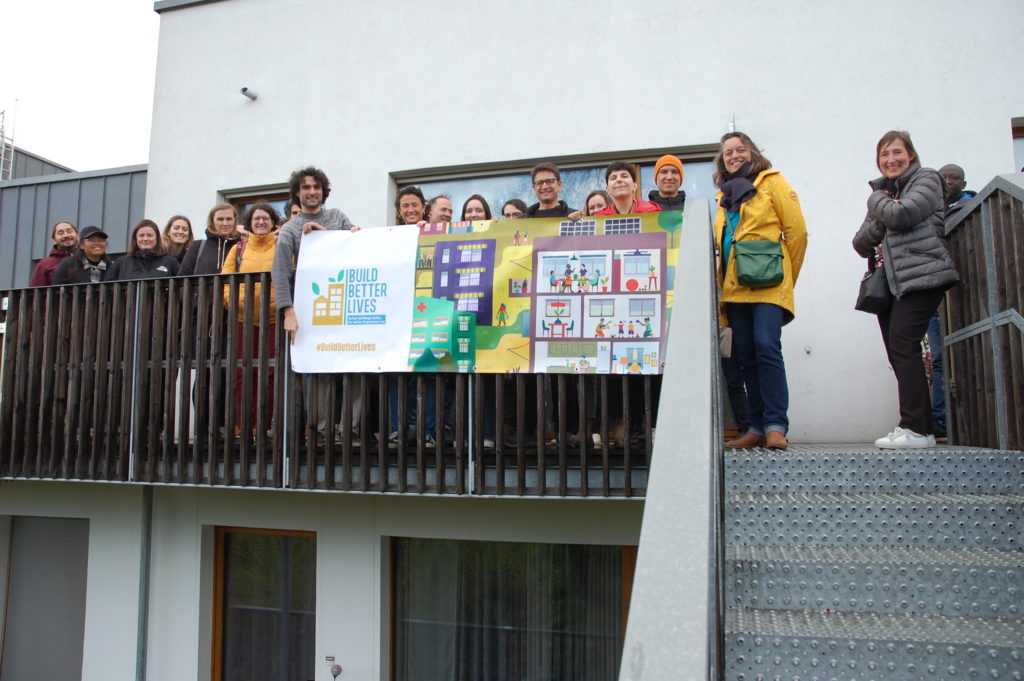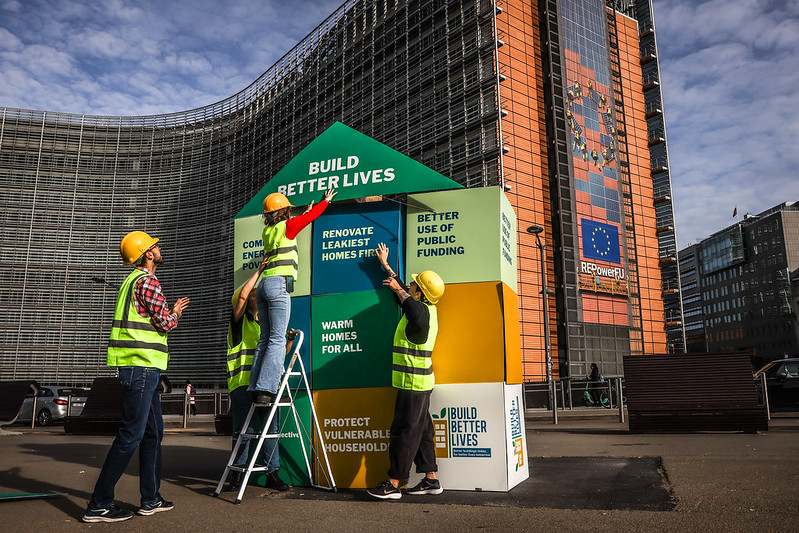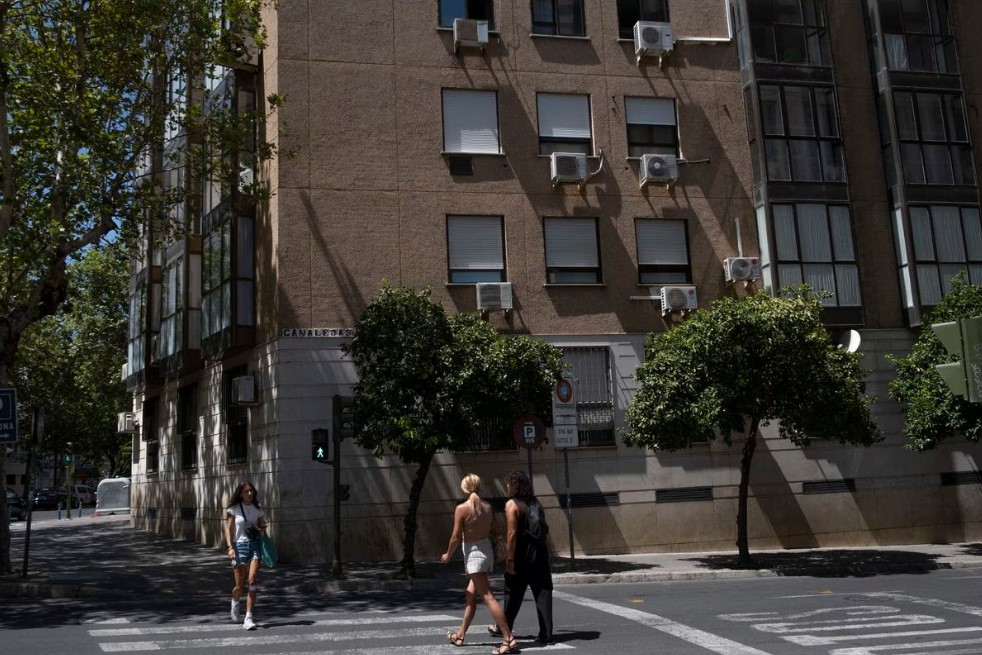Leading the way: Insights from the Colonel Bourg social housing project, an affordable & sustainable housing solutions for all.

Last month, despite the wind and rain, supporters of the Build Better Lives campaign made the journey out to the Colonel Bourg social housing project in the neighbourhood of Reyers in the heart of Schaerbeek, Brussels, to see how affordable & sustainable housing projects are building better lives.
Home is where your health is

Extreme drought in Summer, floods in Autumn, cold winters…anxiety, asthma, arthritis…for people in some parts of Europe, energy poverty has become an all-year-round worry. Many people find it difficult to live within their homes due to these health risks, even some would rather spend their time in a warm bus or in the public library.
Better and healthier households will improve the quality of life for all generations

Improving building policy in the European Union is not just a matter of enhancing energy efficiency; it is a crucial instrument in the fight against energy poverty and health inequity. Current estimates reveal a staggering number; over 50 million households suffer from a lack of adequate energy services in the home, significantly affecting their physical and mental health.
Rent indexation stop: A renovation catalyst?

As a response to the energy crisis, Flanders implemented a rent indexation stop for energy leaky housing with the goal of easing the ordeal for vulnerable tenants that are facing higher living costs, a tripling of their energy bills and rent indexation. The measure led to an increased number of renovations according to the Flemish Rent Platform, as landlords looked to maximize their profits. Nonetheless, the Flemish government decided to discontinue the indexation stop, as supposedly the energy crisis is “over now”.
There can’t be a Renovation Wave in Europe without workers

The EU’s Renovation Wave aims to at least double the annual energy renovation rate by 2030 in order to drastically reduce energy consumption and emissions within the building sector. For this to be achievable, the construction sector needs to attract more workers through decent wages and working conditions.
A Housing-Energy Pact to Build Better Homes across Belgium

Housing in Belgium has become low in supply, more unaffordable, and is mostly energy inefficient. In response to this, the Climate Coalition (Klimaatcoalitie), a Belgian NGO that unites more than 90 civil society organisations, has established a Housing-Energy Pact. This Pact makes up a remarkable alliance of environmental and social organisations that advocate for more homes to be renovated across Belgium in a socially just manner.
Giant building blocks remind negotiators to Build Better Lives

Activists built a three metre high house out of coloured building blocks in front of the European Council and Commission buildings to call for an ambitious and socially just EPBD before the end of the year. The action is part of the Build Better Lives Campaign, which brings together 80 social, health and environmental groups, trade unions and youth movements across Europe.
OPINION: Transforming our buildings today will make better lives tomorrow

Despite millions of people living in unfit housing, for decades, there has been close to no effort towards developing and implementing inclusive and ambitious EU building policies that could support the energy renovation of Spain’s inefficient buildings. In addressing these issues, the revision of the Energy Performance of Buildings Directive (EPBD) is a crucial starting point.
OPINION: Heat or eat? How efficient buildings today can save lives tomorrow

An opinion peice written by Eva Brardinelli, buildings policy expert at CAN Europe, and Mónica Vidal, is heating campaigner at CAN Europe, examines how transforming our homes and buildings can protect lives from extreme climate events and colder homes.
German associations call on their Government to improve building’s renovation rates

On the 19th July, an alliance of 15 industry, consumer, environmental and climate protection associations signed onto a joint letter sent to the German government expressing their concerns over the about the current slump in building renovation rates within Germany. The letter warns that without reducing energy consumption within our buildings, a socially acceptable and environmental friendly energy transition would be impossible.
